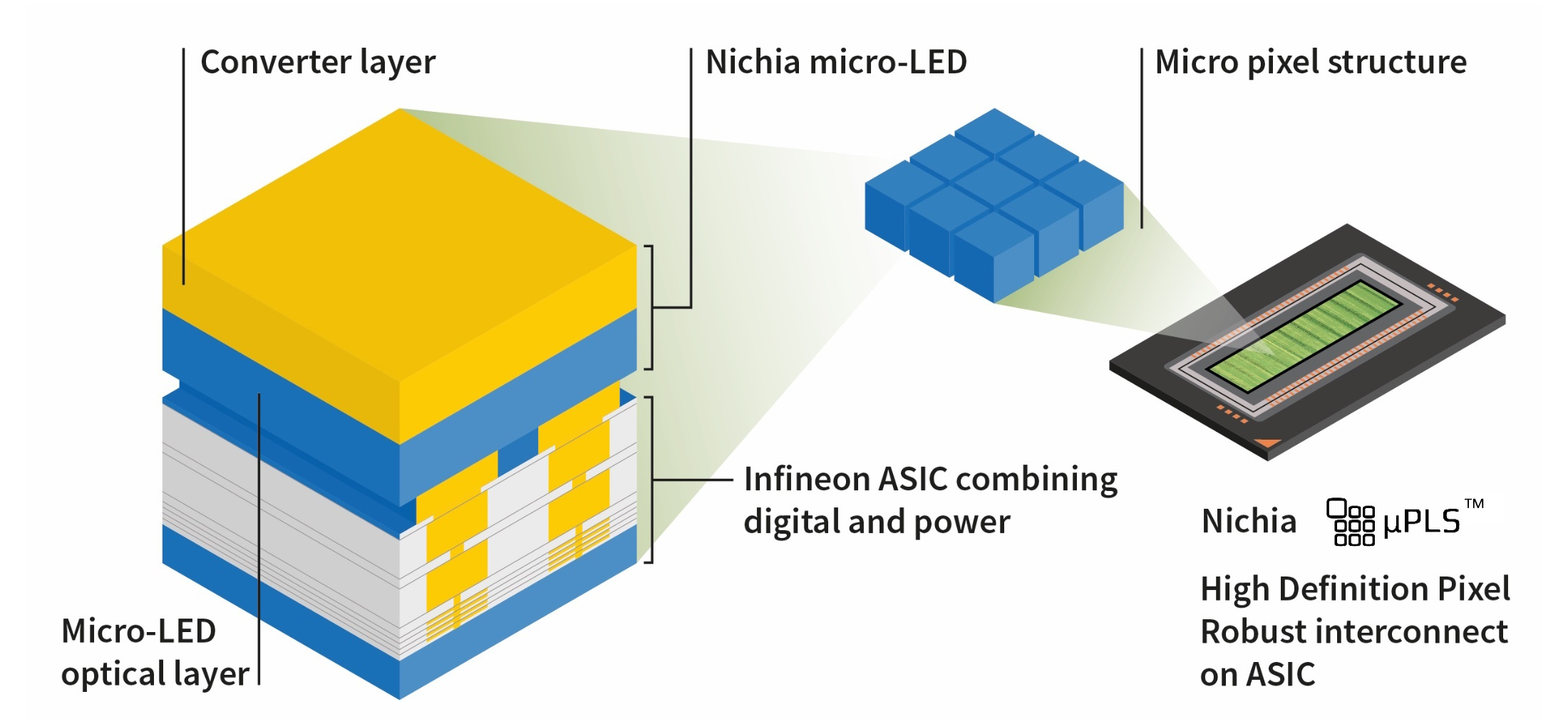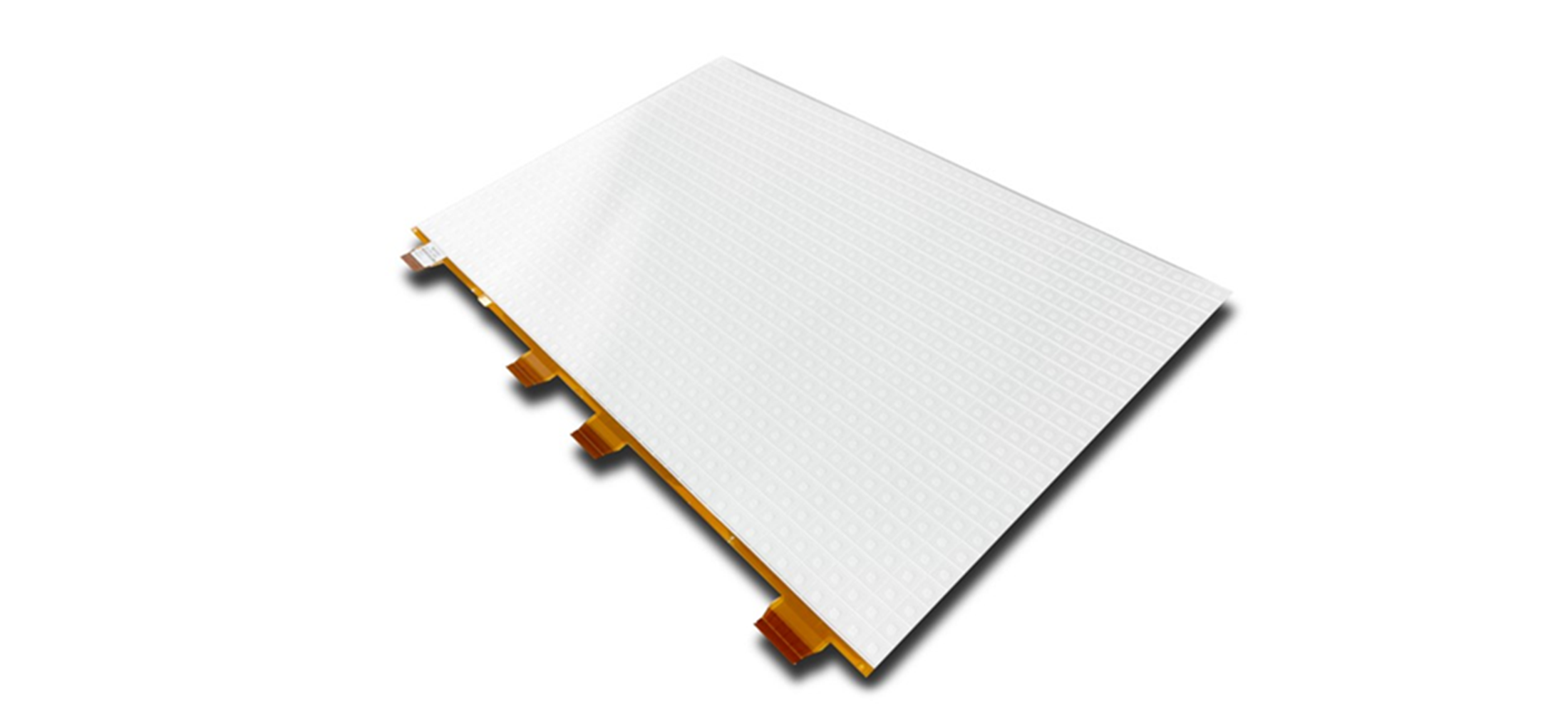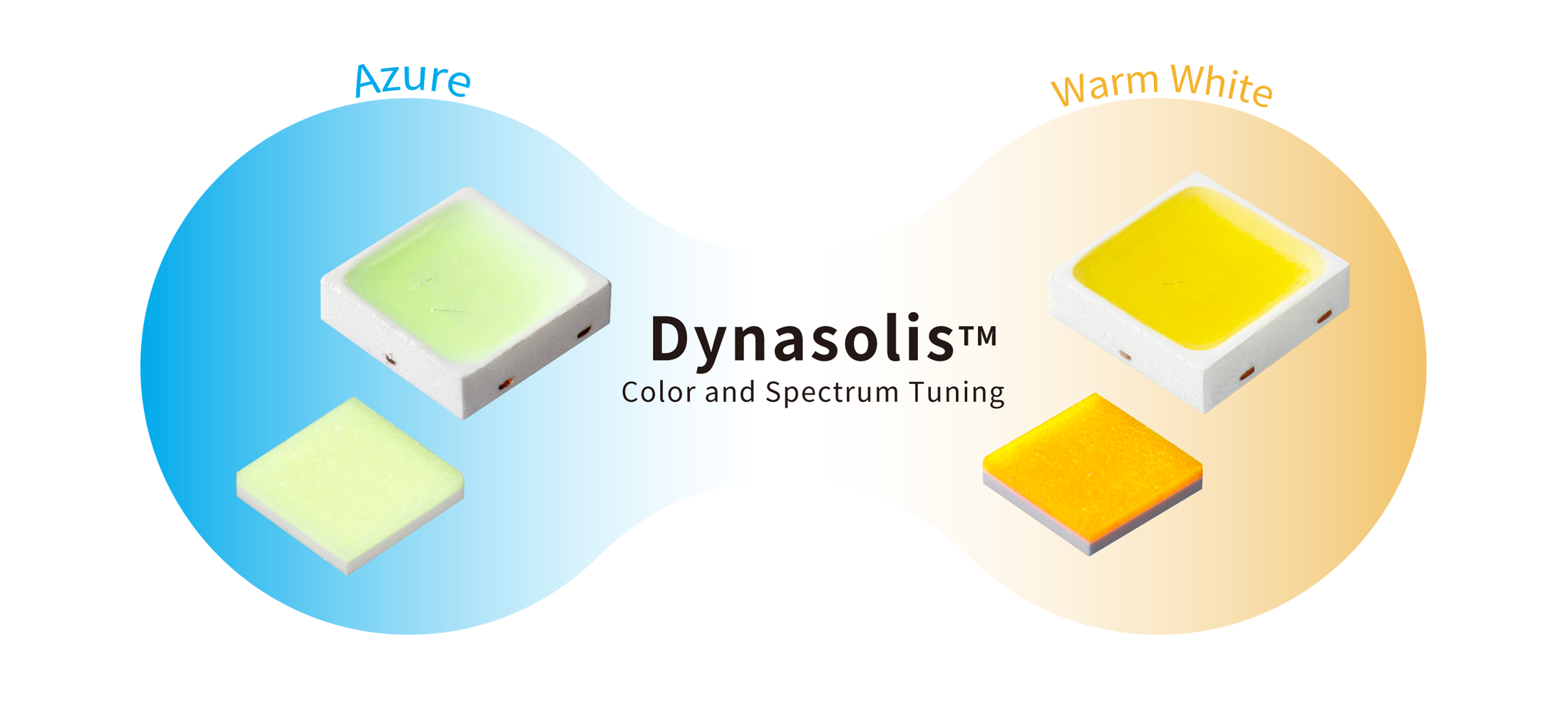 30th Anniversary of the High Brightness Blue LED
30th Anniversary of the High Brightness Blue LED
30 November 2023
The Infinite Possibilities of LED Technology
Since Nichia's invention of white LEDs in 1996, the market for high-brightness LEDs has expanded beyond the applications Nichia had ever expected when first launching blue LEDs. As luminous efficiency of LEDs has improved, the number of applications where LEDs can be used has continued to grow, leading to today's mass adoption.
Examples include:
- Automotive
Expanded from interior lighting applications such as backlighting the instrument panel (e.g. speedometer) and switches for air conditioners, etc. to exterior applications such as turn indicators, DRLs, headlights, etc. - Backlighting for liquid-crystal displays (LCDs)
Expanded from small LCD backlighting for cell phones and digital cameras to notebook PCs, tablets, and eventually large TVs. - Lighting
Expanded from palm-sized flashlights and backlit signage to general illumination, including the replacement of fluorescent lamps, and ultra-high-power lighting used in stadiums.
Even though the applications can vary dramatically, what they do all have in common is the selection of LED technology over traditional technology (i.e. incandescent, fluorescent, CCFL, etc.) so to benefit from higher luminous efficacy, smaller light-emitting area, immediate response time, lighter weight, and more functionality (i.e. controls).
For example, cell phones capable of surfing the internet and capturing our life moments through the camera were realized around 2000. Smartphones emerged soon after that. These innovative devices would not have been possible without the invention of blue and white LEDs. Today, thirty years after the launch of blue LEDs, the use of LEDs is not limited to simply illumination but continues to evolve and develop further. Nichia launched products focusing on the functions and benefits of light, for example, a light engine for HD matrix headlights that provide greater safety for drivers and oncoming traffic, MiniLED backlighting that highlights the contrast and color in images, and human-centric lighting that aims to improve the health of people under illumination. LEDs still have infinite potential. This year marks the 30th anniversary of the launch of blue LEDs, and as a pioneer of the technology, Nichia will continue to pursue the possibilities of light with Nichia's corporate philosophy, "Ever Researching for a Brighter World" in mind.

Figure 1. Light engine for HD matrix headlights

Figure 2. LCD backlighting modules evolved further by using MiniLEDs
Nichia Light Cluster™ Type V

Figure 3. LEDs for lighting that regulate human circadian rhythms
Dynasolis™
